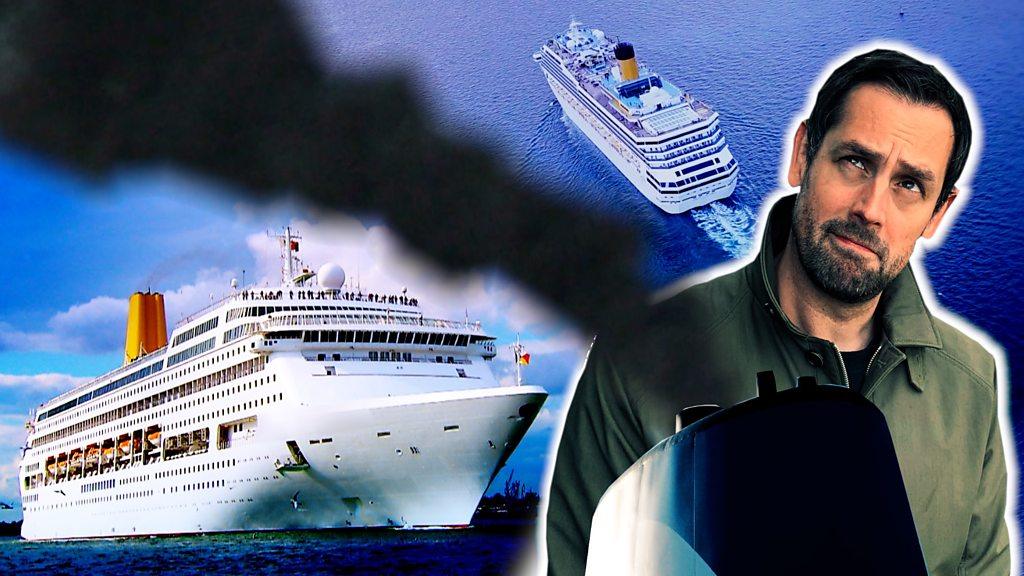Southampton cruise ships avoid port's plug-in power, report says
- Published
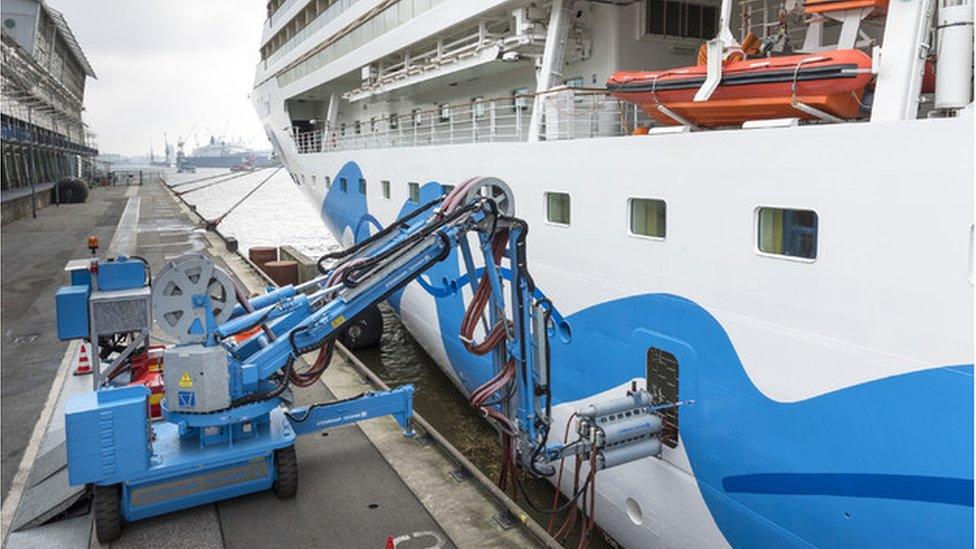
Shore power for cruise ships is available in 33 ports around the world, cruise operator Carnival said
Cruise ships are choosing to burn fuel in port rather than use a city's plug-in shore power facilities, according to a report.
Ships in Southampton plugged in to the National Grid just 71 times in two years, the Open Democracy website said., external
ABP, which runs the port, suggested the UK's relatively high electricity costs might be partly to blame.
Cruise firm Carnival said it used shore power "wherever available and operationally possible".
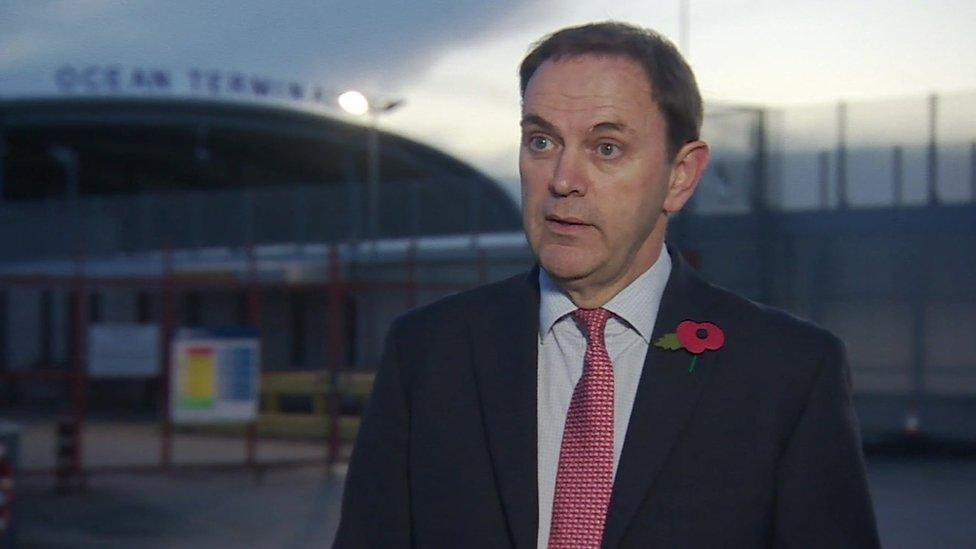
Southampton port director Alastair Welch said he encouraged the use of shore power
Southampton became the first UK port to enable shore power for cruise ships in 2021.
More than 500 cruise ships typically visit the port each year and most of the newer vessels have plug-in capability.
However, only one ship at a time can use the technology because of the power drain.
Port director Alastair Welch said: "Each ship will use twice as much power as the rest of the port put together. We need an awful lot more power into the port to allow shore power for more ships simultaneously."
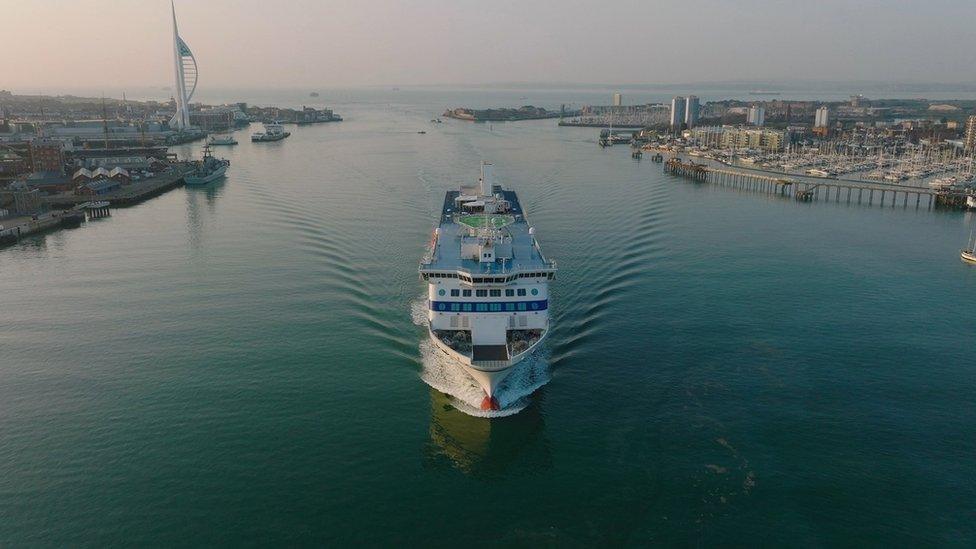
Portsmouth Port has won an £18.5m government grant to invest in shore power
Portsmouth Port is benefitting from an £18.5m government grant that will allow three ships to be powered at the same time from 2025.
Open Democracy said some cruise operators were choosing not to plug-in while berthed because it was cheaper to burn oil or liquefied natural gas.
ABP said: "UK power costs are some of the highest in Europe, which could be another barrier to [shore power] use, with ABP passing on the direct cost to the cruise lines."
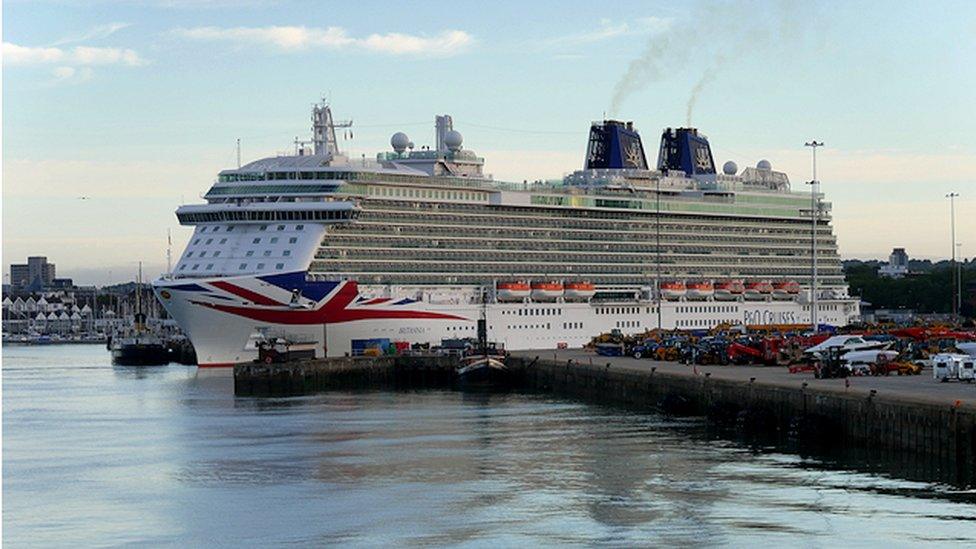
The effect of ships burning fuel on a city's air quality is disputed
The effects of cruise ships burning fuel on air quality and health are still being studied.
In June, Southampton was reported by campaign group Transport & Environment to have some of the highest levels of cruise ship air pollution in Europe.
However, a previous study commissioned by Southampton City Council suggested that ships made a relatively low contribution to nitrogen oxide levels in the city.

Follow BBC South on Facebook, external, X, external, or Instagram, external. Send your story ideas to south.newsonline@bbc.co.uk, external.
- Published15 June 2023

- Published15 September 2021
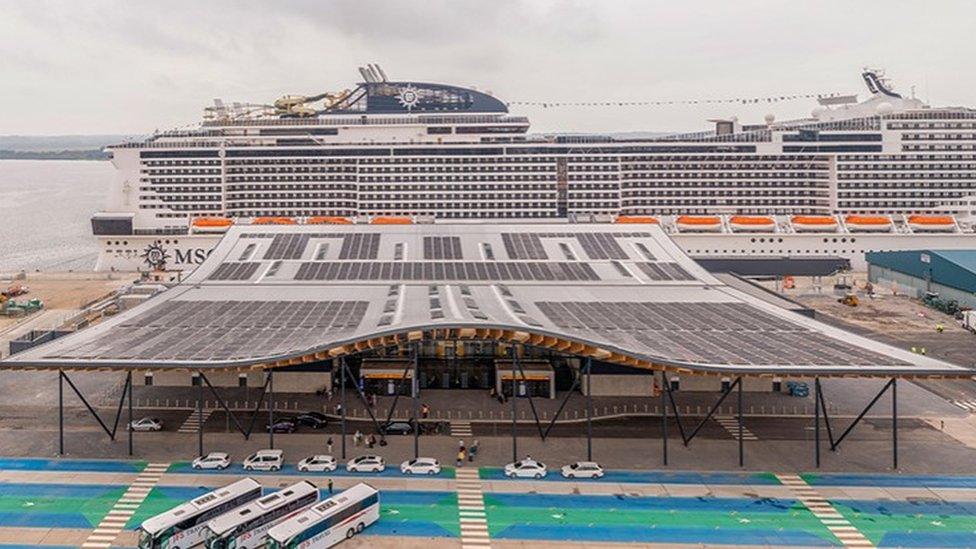
- Published12 March 2020
